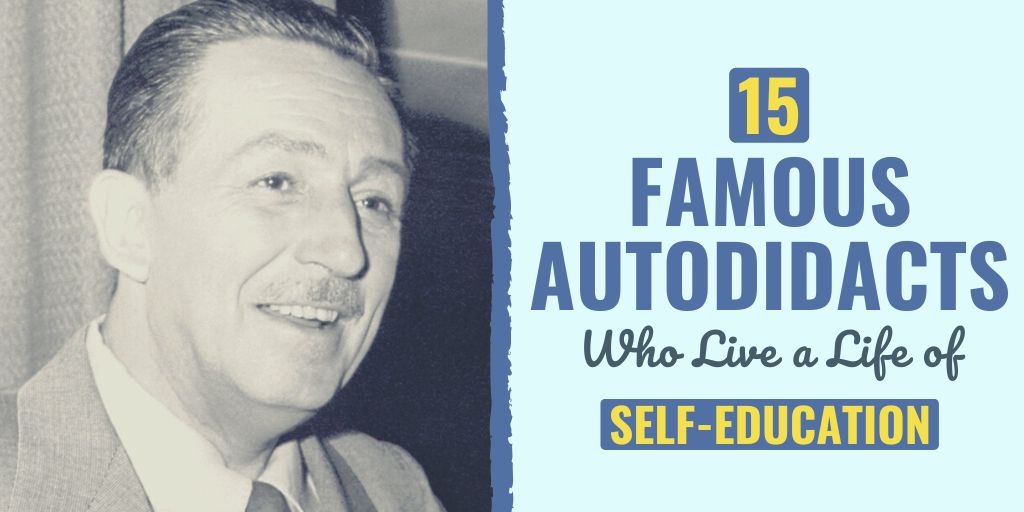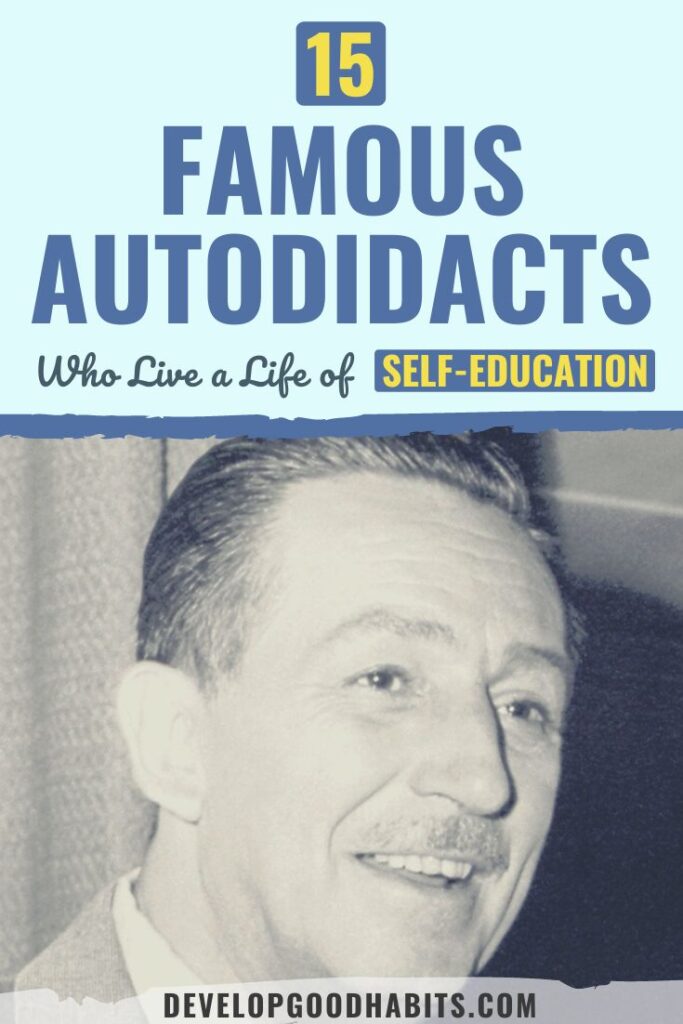Tech companies worldwide report that they no longer require their employees to have a college degree to maintain a job. This is part of a much larger systemic shift, as top universities are struggling to get their students prepared to enter a competitive job market, admitting that real-world experience is as critical as what is taught in college.
Furthermore, emerging technologies and world circumstances have transformed the modern workplace, from the type of jobs available (it’s expected that there will be a huge rise in automation jobs by 2030) to how the typical work environment looks (an increasing number of people working from home).
All of this has created new expectations for displaying professionalism, including the ability to be flexible, have creative skills, have a strong passion for learning, and have an ability to adapt to quickly changing circumstances and learn new things.
All of this requires one to be a bit of an autodidact.
Some of the most successful people in history have been autodidacts; which means they didn’t spend years walking through the great halls of widely known and respected educational institutions.
So how rare is a truly successful autodidact? And what can you learn from them?
In this article, we are going to look at 15 famous autodidacts who have lived a self-educated life.
But first, let’s look at what exactly an autodidact is.
What Is an Autodidact?
Autodidacts are passionate individuals who can choose their subjects and study materials on their own without being bound by the construct of formal education.
The word “autodidact” combines “auto” (which is Greek for “self”) and didacticism (which means “learning”). Therefore, autodidacticism translates to “self-learning.”
While not everyone is an autodidact, most people have taught themselves how to do something at some point during their life. Think of someone with a law degree who knows how to change the oil in their car, or a chef who excels at playing the guitar.
Autodidacts constantly seek out knowledge through the internet, books, and personal experience to educate themselves. They learn the basics of a concept and then acquire knowledge to build on those fundamentals on their own terms.
Autodidacts are goal-oriented individuals who have passions and curiosities outside of their formal training that have motivated or inspired them to do the necessary research or practice to master a skill on their own.
Let’s look at some famous people who have taken this proactive approach in life to educate themselves.
15 Famous Autodidacts Who Live a Life of Self-Education
1. Johnny Depp
When it comes to acting, one of the most talented and well-known professionals, Johnny Depp, has never had any formal training. This self-learner moved to California to pursue a career in music, but ended up working in a telemarketing sales position selling pens.
His early music career allowed Johnny to mingle with the right crowd and make connections with people who would end up putting him in the position he is in today.
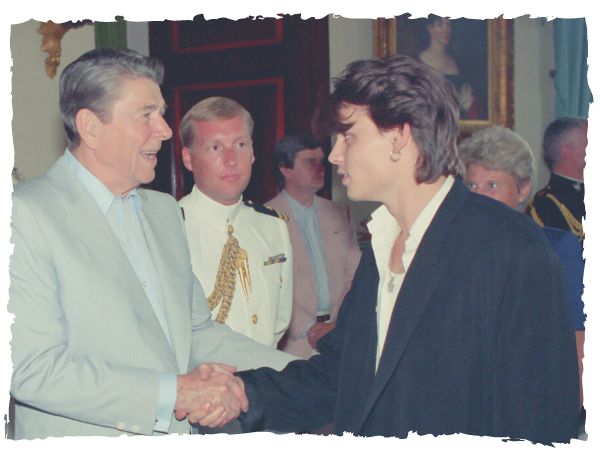
Being an autodidact is more than just acquiring relevant skills on your own–it’s also important to have people skills so you can sell yourself based solely on your raw talent.
In the case of Johnny Depp, he taught himself how to be an actor largely by observing successful actors by paying close attention to and then mimicking their mannerisms.
While he had coaches along the way, his learning was self-directed and acquired through practice and personal studies.
2. Oprah Winfrey
Oprah Winfrey, who is arguably the most successful talk show host in the world, and one of the most influential female media entrepreneurs, is a self-made billionaire who dropped out of college and was fired from her first job as a news anchor.
But as a self-starter and a visionary, she had the determination and drive to ultimately become successful.
Oprah learned to read at the age of three, and continued to nourish her mind and believe in the fundamental importance of reading for self-education. As an adult, she didn’t have anyone very relatable to look up to in her field, and relied only on herself to draw in an unprecedented audience.
Oprah taught herself and others to not be afraid to fail, to stay true to one’s values, and to only rely on oneself for success.
3. Thomas Edison
Thomas Edison is certainly among the people who have added to the comfort and ease of everyday life through their inventions. Edison, who is most famous for inventing the lightbulb, was a “self-made” man.
While he was an eager student, Edison believed he could learn much faster at home without having to raise his hand whenever he wanted to ask a question–which was very often.
He only received three months of formal education, at which point his teacher believed he had an intellectual disability that prohibited him from learning.
His mother took over his schooling and he taught himself by reading on his own.
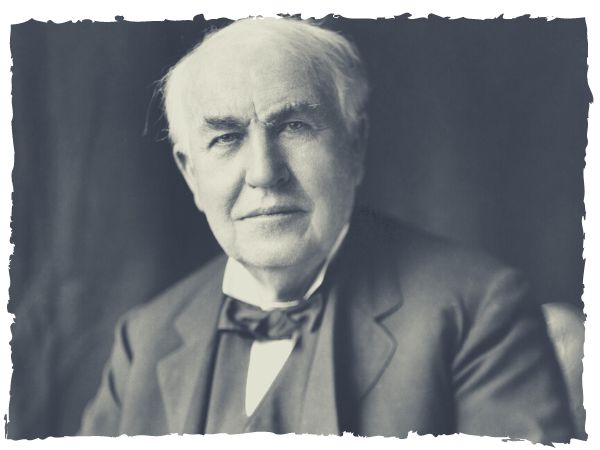
After his mother bought him The Dictionary of Science, Edison’s passion for chemistry was officially sparked, and he began spending all of his spare money on chemicals, wires, and other items from a local pharmacist to use for his experiments. He built his first lab in his family’s basement.
It was Edison’s belief in self-improvement that ultimately made him successful throughout his life. Through his experiments, Thomas Edison contributed to the invention of the phonograph, video cameras, telegraphs, stock tickers, copy machines, and telephones.
4. George Gershwin
George Gershwin already loved music when his parents purchased a secondhand piano for his brother when George was 11. George was quick to display his natural talent on his brother’s piano by fluidly playing a popular song that he learned simply by watching a neighbor play it.
Just 4 years later, at the age of 15, he dropped out of school to pursue piano professionally.
While he did work with various piano teachers, George Gershwin realized quickly that the tools he was given by teachers and mentors were not sufficient if he wanted to achieve the sound he was searching for. But when he studied music, he was able to find the kind of voice that he had been longing to find.
While it has often been said that Gershwin’s music was casually passed over by more professionally trained musicians because of Gershwin’s lack of instruction, he went on to create one of the most original musical languages in the history of music. He coupled two competing genres of music together, jazz and classical, to compose his Rhapsody in Blue.
5. Bill Gates
Bill Gates famously dropped out of Harvard to create Microsoft, but this isn’t what turned him into an autodidact. His self-learning started much earlier in life, when he turned to reading for an escape from life when he was a child. He has always been compelled to be proactive with his learning by teaching himself the things he needs to know.
Bill Gates would read for days at a time as a child, becoming so immersed in his experience of learning that he would forget to do everyday tasks such as eating meals.
As a teen, he would sneak out early in the morning and go to the computer lab on the University of Washington campus. After finding out that the university’s supercomputers were idle between 3:00am and 6:00am, he took it upon himself to learn how to program them.
In his 2007 Harvard commencement speech, Gates urged others to become self-taught, urging graduates, “For a few hours every week…use the growing power of the internet to get informed, find others with the same interests, see the barriers, and find ways to cut through them.”
6. Walt Disney
Walt Disney came from an ambitious and entrepreneurial family, but that isn’t to say they were always successful. While he had very little schooling, Walt was already working at the age of nine, delivering papers with his brother before school.
Waking up early day after day led Walt to sleep through most of his school day, which was reflected in his grades. As a young entrepreneur, Walt started looking for ways to make his own money through his own sales businesses.
Walt Disney ultimately became the co-founder of the Walt Disney Media Empire by using the help of correspondence schools to teach himself the art of cartooning.
7. Elon Musk
Elon Musk, the CEO of Tesla, SpaceX, and Twitter is certainly one of the most accomplished autodidacts, having taught himself rocket science, automotive engineering, and solar design. While he has a Bachelor’s degree in physics from the University of Pennsylvania, that certainly didn’t give him all of his knowledge.
Elon knew that if he surrounded himself with the right people and read every textbook he could find related to aerospace, rockets, and space travel, he could learn how to land a spacecraft on Mars.
So while in 2001, he knew nothing about rockets, he cold-called aerospace experts such as Jim Cantrell to gain the knowledge he longed for.
He spent his time with people who also had a passion for being self-taught, so he was able to share knowledge on the very topics that piqued his interests.
Furthermore, Elon understood what he read rather than just memorizing it, allowing him to apply his self-acquired knowledge in his conversations with the other experts he spent his time with.
One thing that is unique about Musk is that not only is he self-taught, but he also loves to share his knowledge and teach others what he knows. This shows that he believes in the ability to acquire knowledge on one’s own and he encourages others to do the same.
9. Kato Lomb
Kato Lomb claims that with interest and motivation, in addition to an ability to leave inhibitions behind, anyone can master a new language. Having learned 16 languages herself, she would know the secret.
Over the span of 25 years, Kato Lomb taught herself how to speak 10 languages, translate technical documents and read fiction in six more, and understand written journalism in 11 more.
Kato received a good education when she was raised in Hungary, and she even went on to earn a PhD in chemistry and physics; however, she wasn’t keen on learning foreign languages until she was an adult. She was interested in the study of words, and appropriately became one of the first simultaneous interpreters in the world.
Once she was in her mid-twenties, she began to study English, and then went on to learn 15 more languages. As the author of Polyglot: How I Learn Languages, she has become an inspiration to other adult autodidacts who seek to learn new languages on their own.
10. Julian Assange
Many have become familiar with Julian Assange over the past ten years. As the founder of WikiLeaks, he has used his self-teaching skills to become an expert in hacking and computer codes.
Assange is well known for publicizing confidential emails from the DNC, video footage of war crimes, and other classified documents. While some consider his work to be criminal, others praise him for his ability to reveal some of the government’s truths.
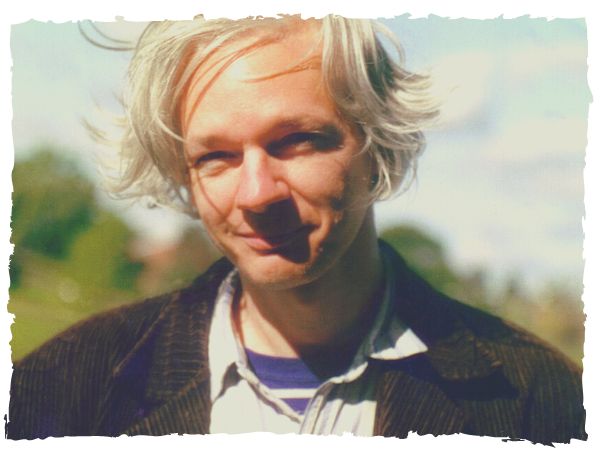
Raised in Queensland, Australia, Assange moved around with his family very frequently, attending a total of 37 different schools. Once he was given his first computer at the age of 16, he started teaching himself how to hack and program technology.
His inclination for math, coupled with his high IQ, contributed to his autodidactic nature. While he did attend the University of Melbourne, he never earned a degree.
11. Tim Ferris
Tim Ferris is a name that comes up a lot on DGH, and he actually fits the bill for a modern-day autodidact. And, as someone whose knowledge spans a wide range of subjects, from investing and biohacking to writing non-fiction, his personal system for learning difficult skills on his own has been very lucrative for him.
Tim Ferris developed most of his skills on his own by talking to experts, studying on his own, deliberate practice, and through his own method of learning through skill deconstruction.
As a post-graduate, Tim Ferris found himself feeling overworked and depressed, which inspired him to be more intentional with his time and develop streamlining processes and write his famous book, The 4-Hour Workweek.
As someone who is self-taught, Tim Ferris uses his platforms to inspire others to become successful autodidacts as well.
12. Bob Dylan
Arguably among the most influential musicians of the past century, Bob Dylan has referred to himself as a “song and dance” man. While he did enroll in one semester of college, he frequently skipped class to immerse himself in the Minneapolis folk scene.
Dylan fell in love with folk music and he began teaching himself how to play the guitar as a teenager. He learned simply by listening to records and figuring out the chords. He is also known for saying he doesn’t believe in guitar lessons, which explains why he never took one.
He quickly became proficient at playing the guitar and would play for hours as his skills gradually improved. He went on to become one of the most talented and respected guitarists in the world.
13. Albert Einstein
Einstein wasn’t known to be the best student in school. Often skipping class, Einstein failed physics and was called a “lazy dog” by his math professor. But while Einstein had a distaste for attending classes, he had a zest for studying theoretical physics at home.
Einstein didn’t learn physics by attending classes, instead, he learned it by playing and experimenting with the concepts and equations on his own time. He was able to learn better by doing rather than listening.
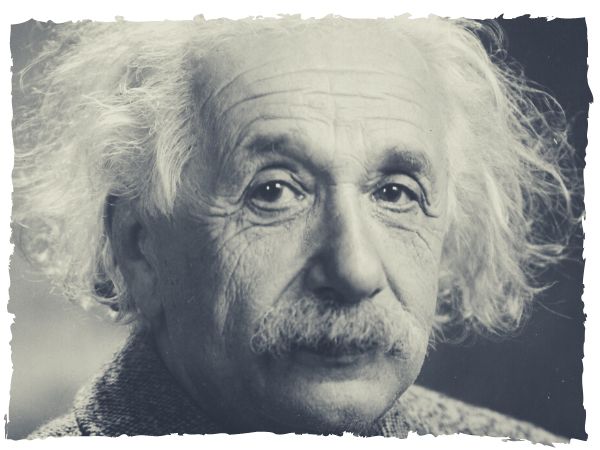
In fact, Einstein mastered new theories by proving them on his own. This learning approach came naturally to Einstein, who was driven by his curiosity to learn how things work, and a belief that nature could be understood in terms of math.
Einstein’s curiosity is what inspired him to develop an understanding about physics, which made him a true autodidact.
14. Steven Pressfield
Steven Pressfield is a self-taught author who is known for best-sellers like The War of Art and The Legend of Bagger Vance, which has since been made into a movie. He even wrote a book, Turning Pro, detailing how he taught himself how to become a successful writer.
By studying the successful people who came before him and practicing every day, Pressfield was able to author and publish his first book. This process took 27 years, but the dedication he maintained outlasted all of his naysayers who wouldn’t initially support his manuscripts.
When it comes to being self-taught, Pressfield agrees that “any art has principles and techniques, which must be studied and mastered”, but it’s the passion and feelings that are at the heart of true art. This attitude is what makes Pressfield a true role model for autodidacts today.
15. James Cameron
Contrary to what one may think, a film degree is not necessary to become a great filmmaker. While a film degree can teach the basics, it is expensive and doesn’t guarantee true talent or a job.
However, film is something that can be self-taught with the right motivation and affordable equipment. James Cameron is one iconic filmmaker who learned this craft independently.
He took an usual path to fame. When he was 17, he came to the United States from Canada with plans to study physics and begin an academic career. But instead of staying in college, he got married and became a truck driver.
But when he saw Star Wars in 1977, he was inspired to become a director. He then taught himself how to record, edit, and direct, and started creating his own films, later going on to direct films such as The Terminator, Titanic, and Avatar.
This modern autodidact is certainly an example of one who has become very respected in his field without any formal education.
Final Thoughts On Famous Autodidacts
Looking back on the lives of these great minds and creative geniuses, it’s clear that their most valuable education didn’t come from the classroom, but rather from life experience.
Some of these famous individuals studied on their own through reading and research because of their passion for a subject, while others built their success out of necessity after having to drop out of school to work as young children due to their family situations.
The lesson here is that you can find your own experiences and seek out knowledge to create your own amazing destiny.
For more information on becoming self-taught, check out these 20 self-education habits.
Finally, if you want a PROVEN method to mastering your next test, then take this short masterclass on how to study for exams and getting excellent grades.

